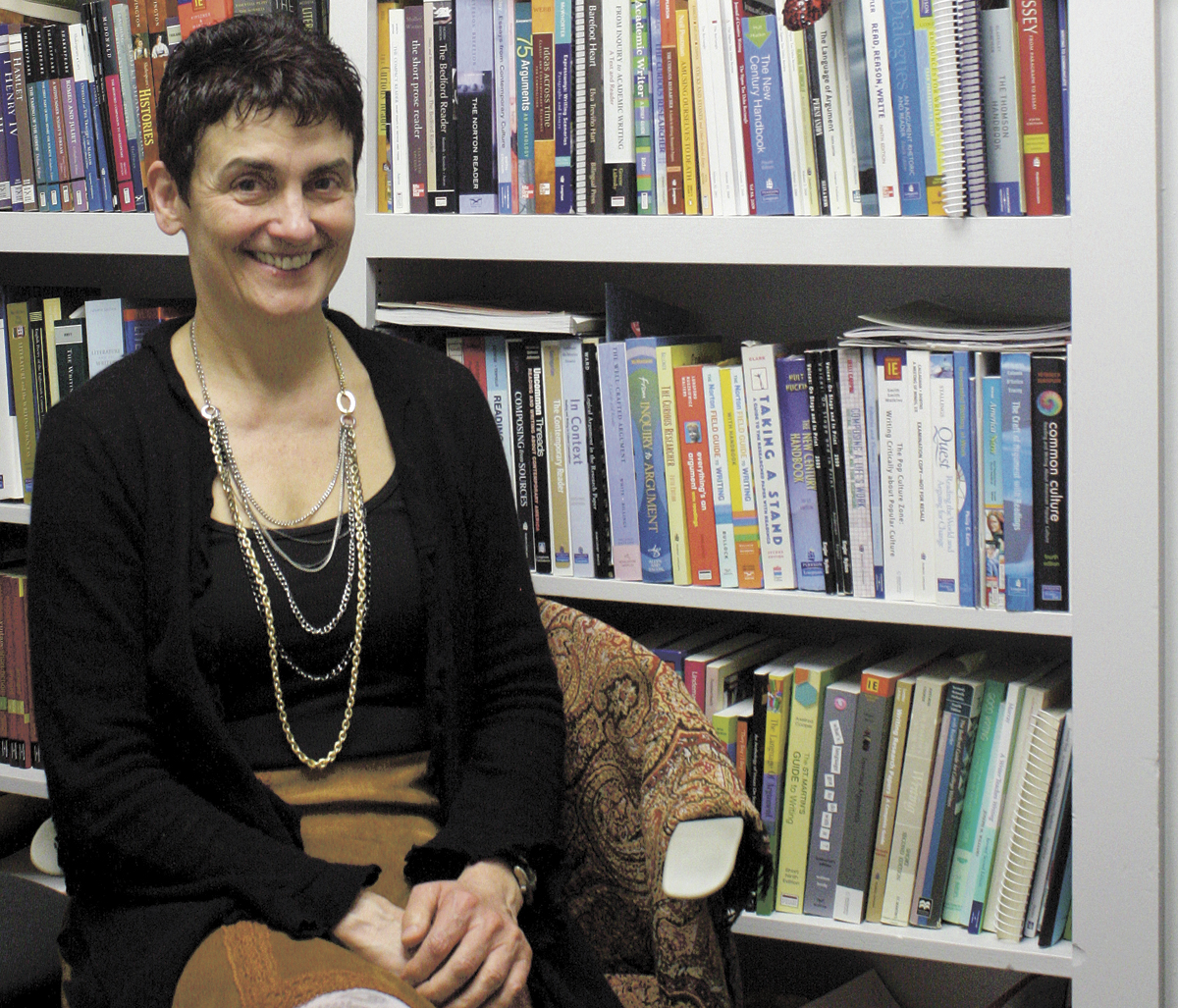Susan Nyikos brings Hungarian culture to English classes
English lecturer Susan Nyikos hails from the far-away land of Hungary, yet knows the English language better than most her students, which she said she finds ironic and humorous.
Nyikos has been teaching at Utah State University since 2003, and has taught numerous classes about English literature, as well as both university-wide required English writing classes, English 1010 and 2010.
Nyikos is not only a lecturer here at Utah State, she is also the faculty adviser for the international honor society Sigma Tau Delta. She is a board member of Helicon West, was assistant director for the writing program at USU for two years, and has helped organize the annual Beat Night poetry program twice since its inception in 2006.
“My colleagues will tell you I’ll do anything and everything,” Nyikos said. “And that might be true.”
Nyikos was born and raised in Hungary, attended college there, and taught history and Hungarian language and literature to Hungarian students from 1978 to 1983.
Nyikos said it was a challenge to teach in a communist country, and said her colleagues and students were the best things about her job in the Hungarian high school.
“In a communist country, you are following accepted ideology. You taught with a smile on your face,” she said. “My students had a very down to earth look at life and politics.”
Nyikos moved to the U.S. when she was married, and moved around quite a bit in the years following her marriage. She taught at York College in Pennsylvania and taught English to non-English-speaking adults for NATO; she lived in many European countries such as Germany and Switzerland.
Emma Shoaf, sophomore in agri-business, said no student can fall asleep in Nyikos’s class.
“She’s crazy in a good way. It keeps me entertained in class,” she said. “You definitely can’t doze off in her class because she’s too funny.”
Shoaf is currently in one of Nyikos’s English 2010 classes, and said she likes having her as a professor, because she’s not what students expect.
“She’s not like a normal teacher,” Shoaf said. “She’s your teacher, but you could think of her as another student up in front of class.”
Shoaf also said Nyikos takes the stress out of writing, because she doesn’t get angry with her students, she just helps them through the writing process.
Other students like the way Nyikos teaches as well. One of her students from a prior English 1010 class, recent graduate Paola Magallanes, said Nyikos was her favorite teacher.
“Her attention to her students is amazing,” Magallanes said. “She really reads and responds to papers and is always willing to do what she can to help whether in the class or just your education in general.”
Nyikos said someday, if she had the chance, she would like to go back and teach in an East European country, in order to see the changes in Europe, and to bring back her experiences to USU.
“So much has changed there, I’d like to combine these experiences, to see and understand the bigger changes in academia, for example,” Nyikos said.
But Nyikos is certainly not all work and no play. She said for fun she does like to do research. She has done research on Gothic Novels, and is currently doing a bit of research on women educators and the difference in their treatment in Europe.
“I really want to work on something that will bring together two different cultures,” she said.
But when she really wants to relax, Nyikos reads books, hikes and spends time outdoors and writes poetry.
“In Hungary, we don’t do those kinds of things. There are people who are poets, so why should we write poetry?” she said. “But yes, I’ve written some poems.”
Recently, Nyikos was a judge for the Sigma Tau Delta “Bad Poetry Contest” where students were encouraged to bring the worst poem they could find, whether written by themselves or someone else, in order to win prizes.
Nyikos said her crowning achievement in life has been her sons. She has three sons, all of whom graduated from Utah Sate – two from the English department, and one from the anthropology department.
But the most important thing, she said, is why she is where she is.
“My students are the reason I am a teacher. I enjoy how I am constantly learning from them,” she said. “They are also an infinite source of creative thinking, and who wouldn’t want to be part of that?”
– april.ashland@aggiemail.usu.edu

